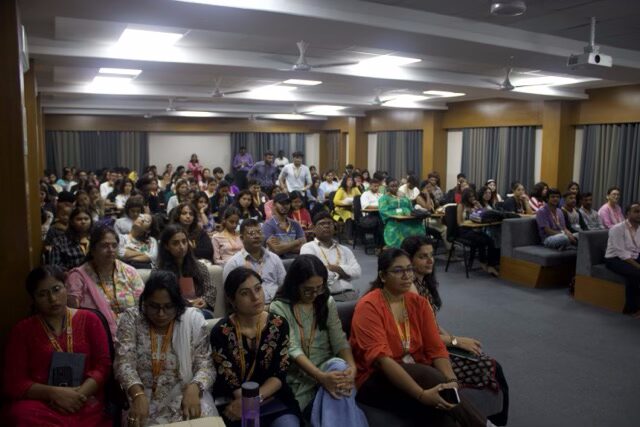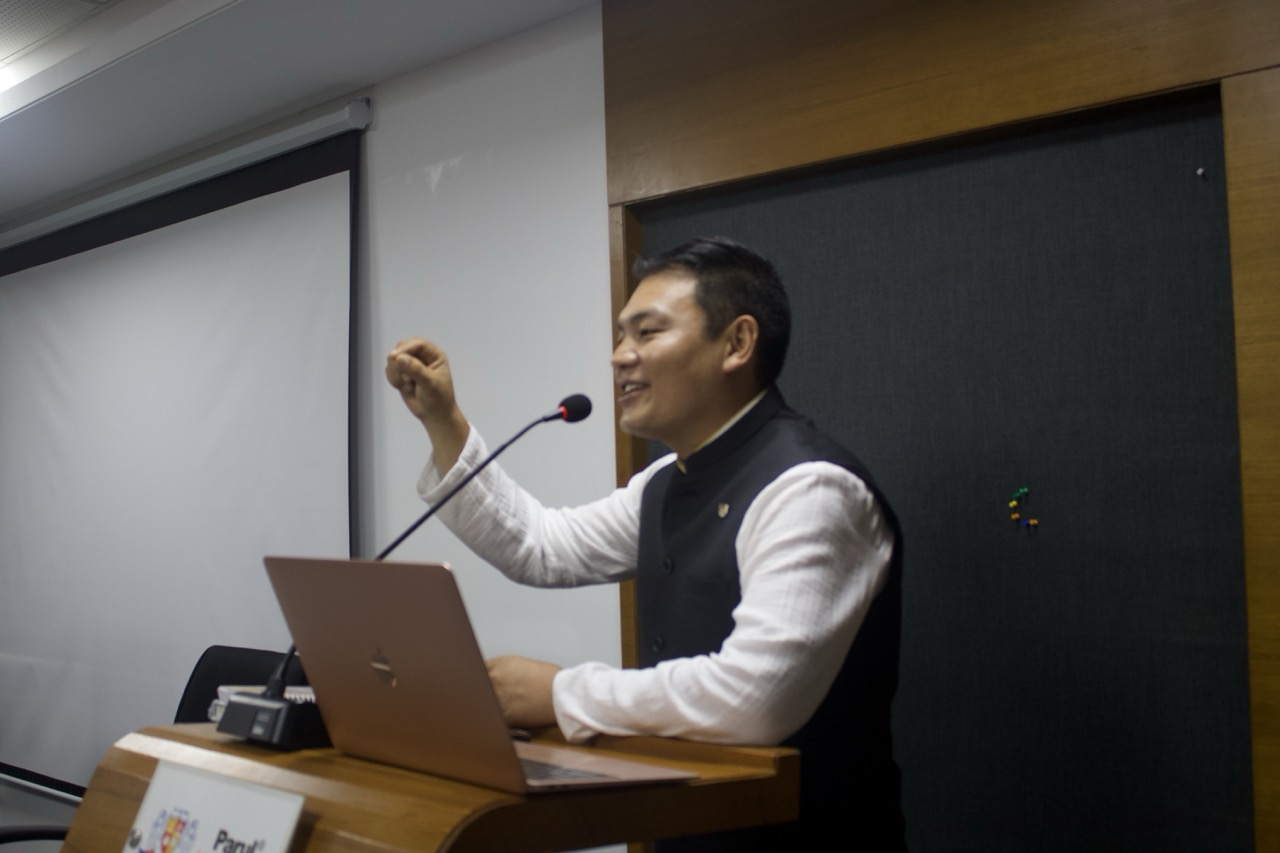July 7, 2025: On the occasion of the Dalai Lama’s 90th birthday, 108 Peace Institute in collaboration with the Faculty of Liberal Arts, Parul University hosted a public lecture titled “The Dalai Lama at 90: Legacies and the Road Ahead.” The event brought together scholars, students, and faculty to reflect on the spiritual leader’s enduring legacy and his vision for the future.
The session opened with remarks from Dr. Digvijay Pandya, Dean of the Faculty of Liberal Arts, who underscored the urgent need for compassion in a world increasingly marked by digital alienation and emotional distress, especially among youth. He praised His Holiness the Dalai Lama for his lifelong commitment to fostering peace and moral consciousness for the benefit of future generations.
Mr. Yeshi Dawa, Senior Researcher at the 108 Peace Institute, delivered the keynote address. He began by acknowledging the Government and people of India for their steadfast support of the Tibetan cause for over six decades. His lecture centered on the four principal commitments of the Dalai Lama.
Mr. Dawa elaborated on the Dalai Lama’s emphasis on compassion as a universal human value, beyond religious boundaries. He also highlighted the Dalai Lama’s engagement with leaders of various faiths. Mr. Dawa noted His Holiness’s conviction that all major religions promote love, kindness, and compassion. This belief has guided the Dalai Lama’s efforts to foster interfaith dialogue and harmony.
Mr Dawa delved into the Dalai Lama’s pivotal role in internationalizing the Sino-Tibetan conflict through his global outreach. His receipt of the Nobel Peace Prize further amplified international support for the Tibetan cause and underscored his commitment to safeguarding Tibetan cultural identity. He also quoted the Dalai Lama’s oft-repeated line: “My mind is filled with Nalanda thought, and my body is nourished by Indian lentils and rice,” stressing his deep connection to India. The Dalai Lama’s collaborative work with global scientists has played a key role in reintroducing India’s ancient knowledge systems to the modern world.
The lecture also touched upon the sensitive issue of the Dalai Lama’s reincarnation, emphasizing its importance in ensuring continuity of the Tibetan cause and for global peace. He raised concerns about China’s ongoing efforts to assert control over the selection of the 15th Dalai Lama.
The session saw participation from over 100 attendees, including faculty members, researchers, and students. It concluded with a Q&A session and the presentation of a copy of Voice for the Voiceless to Dr. Pandya as a token of appreciation.

